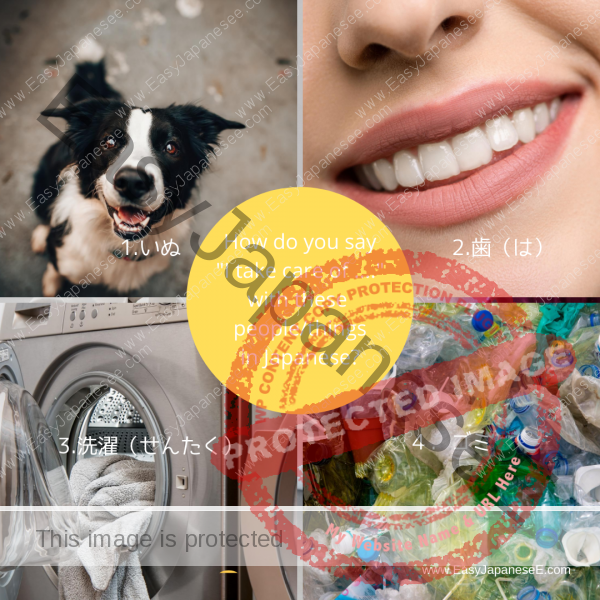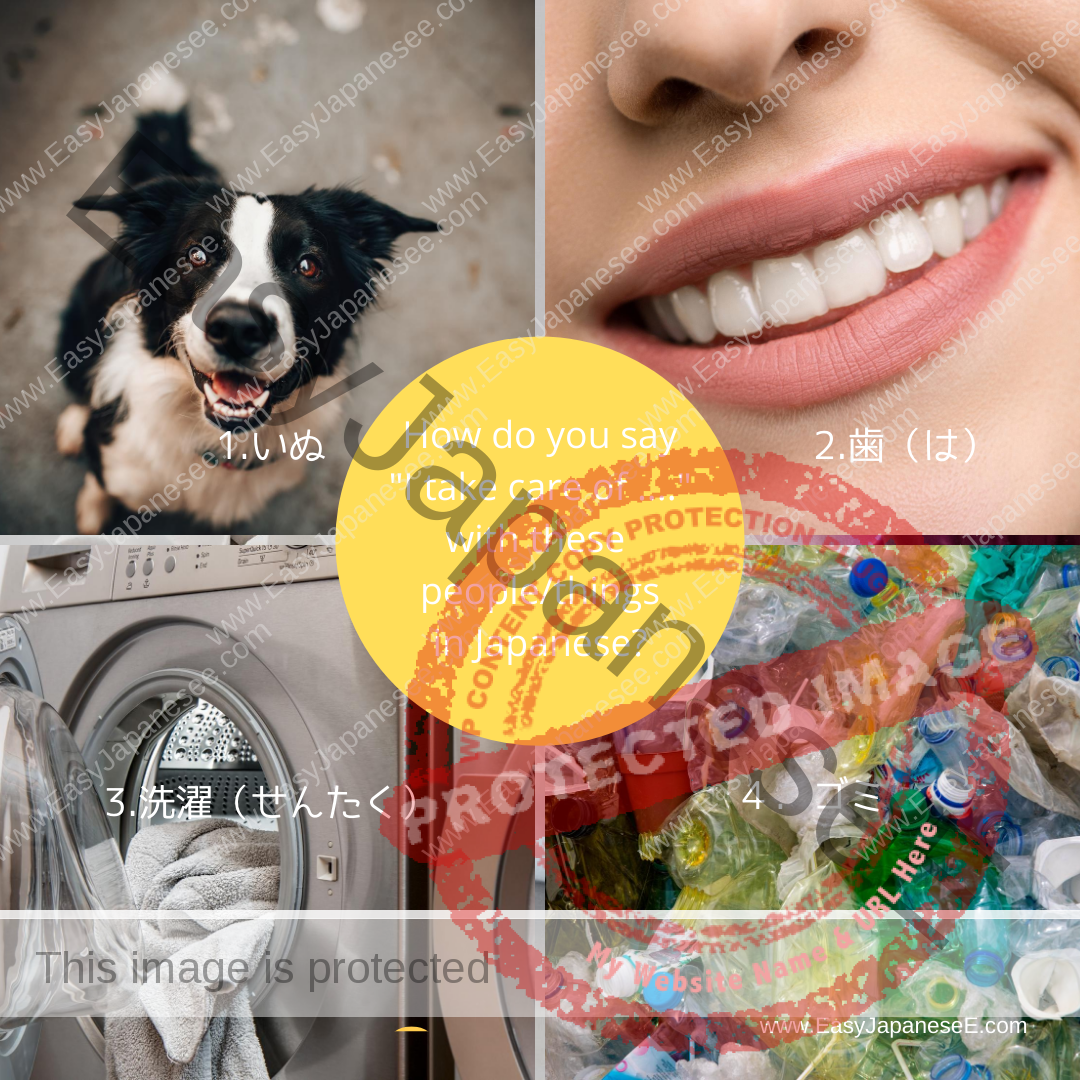
You can say “I take care of ….” in English for all of these items, but how do you say that in Japanese? Unfortunately there is no one phrase in Japanese which can take care of all these!
For people and animals, probably ~の世話(せわ)をする is the most common way of saying it. However, if the person cared for cannot look after him/herself like extremely old people and/or disabled people (but not infants and/or animals), ~を介護(かいご)する can be used. ~の面倒(めんどう)をみる is another option but the word 面倒(めんどう) means “trouble,” so don’t use it unless you are absolutely sure that it is OK to use it in the situation.
親(おや)の世話(せわ)をする = to take care of one’s parent(s)
For something/someone precious, I would use ~を大切(たいせつ)にする. This is more like “to take good care of…”
親(おや)を大切(たいせつ)にする = to look after one’s parents carefully
友情(ゆうじょう)を大切(たいせつ)にする = to treat friendship as an important matter
For accepting the job of taking care of something, ~を引(ひ)き受(う)ける is a common way of saying it. It has a nuance of “willingly” doing it, rather than “reluctantly.”
洗濯(せんたく)を引き受ける = to take care of the washing
料理(りょうり)を引き受ける = to take care of the cooking job
For items which needs to be gotten rid of or to be dealt with, ~を処理(しょり)する and ~を片(かた)付(づ)ける are common. Here the word before を should be a simple noun which doesn’t have a verb form.
ゴミを処理する = to take care of (= deal with) rubbish
部屋(へや)を片付ける = to take care of (=tidy) the room

